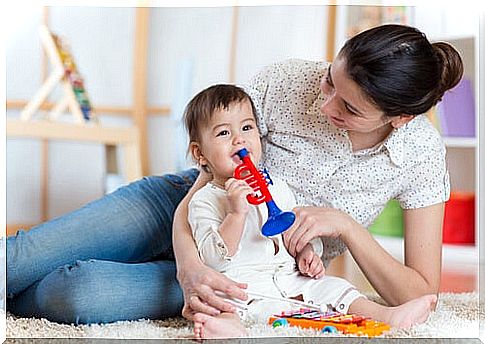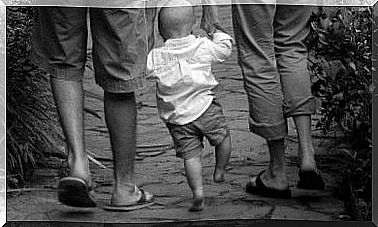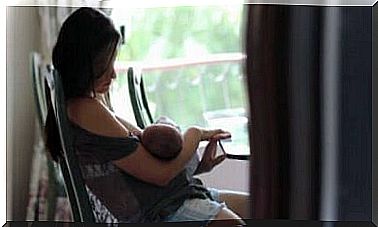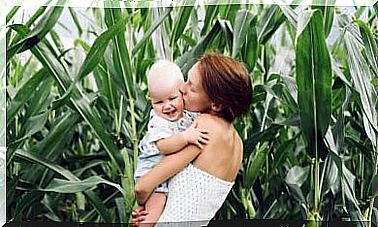Constructive Discipline For Babies

Constructive discipline for babies is about teaching, not punishing. This type of education encourages socialization and provides better coexistence in the future.
Discipline and obedience are essential for the formation of the human being of the future. The essential principles of coexistence and respect cannot be missing from the first teachings.
What is constructive discipline?
It consists in teaching children, guiding them and making them participants in their learning process, and not condemning their mistakes and failures. Through constructive discipline, the child learns values, limits and rules to act in the family and in society.
Constructive discipline teaches valuable lessons and seeks long-term happiness results. Punishment, on the other hand, seeks to change behavior through fear.
Through discipline, the consequences of actions may be seen differently by the child. Saying “you are being punished for lying” does not have the same effect as making the child think about lying as wrong. A disciplined child learns to take responsibility for his actions.
Teaching from values is part of the constructive discipline for babies. Honesty, respect, integrity, kindness are the foundations of the relationship between father and son. Therefore, they must be followed and above any threat. Learning from these principles will bear good fruit in the future.
How is constructive discipline applied?
Since early
Constructive discipline for babies starts early. It is related to knowledge of boundaries (both internal and external), taking advantage of opportunities and recognizing risks.
Teaching a child what things and situations are dangerous is part of the responsibility parents have with their children. This teaching must always be positive. In this way the child can better understand, accept and successfully internalize.
Saying “no” to a baby with love and care teaches that there is a time and a place for everything. Bedtime and eating times, positive routines and risky situations are information that should be passed on regularly.

music therapy for integration
After 8 months the baby starts a new stage of socialization. During this period, music therapy is a very useful tool.
Sound and movement not only stimulate communication, but also promote the social integration of the little one. Music, therefore, is an excellent ally in stimulation, in addition to facilitating learning.
active and curious
From the first year onwards, the child is much more active, demanding, impulsive, daring and curious. At 18 months she can understand simple reasoning. This is a good time to explain why there are rules.
At this age, she also starts to feel more independent and with personality. The word “no” is already part of your vocabulary and parents must be firm. They should also reason with the child, emphasizing the consequences of their actions. The conversation should be in age-appropriate language.
The “no” must be reaffirmed between the ages of two and three. At this stage the child will want to do everything alone. Letting her do it alone is very positive as long as you explain what the dangers of the situation are. It is necessary to watch the child closely, but without feeling this as a threat.
imposition of will
Constructive discipline requires patience and serenity from parents as the child will try to impose his will.
In this case, several strategies can be applied. One of them is to distract the child, preventing him from doing things that are not allowed. Another way is to offer alternatives so that she understands that you cannot have everything. That way she will know that some things she can do and some things she can’t.

The Strictly Necessary
Reserving the word “no” to what is strictly necessary will not make the child feel restricted. Whenever there is a need to say “no”, your actions should complement.
The important thing is to be consistent. If today the child cannot scratch a wall, tomorrow he won’t be able to either. This instruction will have to be repeated permanently. Set limits and ensure that they are respected, always with love and not punishment. It will make a difference.
Realistic goals and appropriate words
Constructive discipline requires that the goals set are realistic. They need to be tailored according to age, abilities and circumstances. That way the kids will be able to follow.
When a child tries to do something and doesn’t succeed for the first time, he deserves encouragement for his effort. This will motivate both trying again and taking other risks.
Using the right words can influence your child’s behavior. Words like “help”, “magic”, “guess what” usually have good results. Specific instructions such as “you can sit here” have more effect than generic instructions such as “stay still”.
If children are raised from an early age with discipline, love and patience, from the age of 3 they will already start to follow the rules. After 4 years, the limits must be reaffirmed permanently and affectively. Between the ages of 6 and 12, teaching must be focused on the relationship with the environment.









